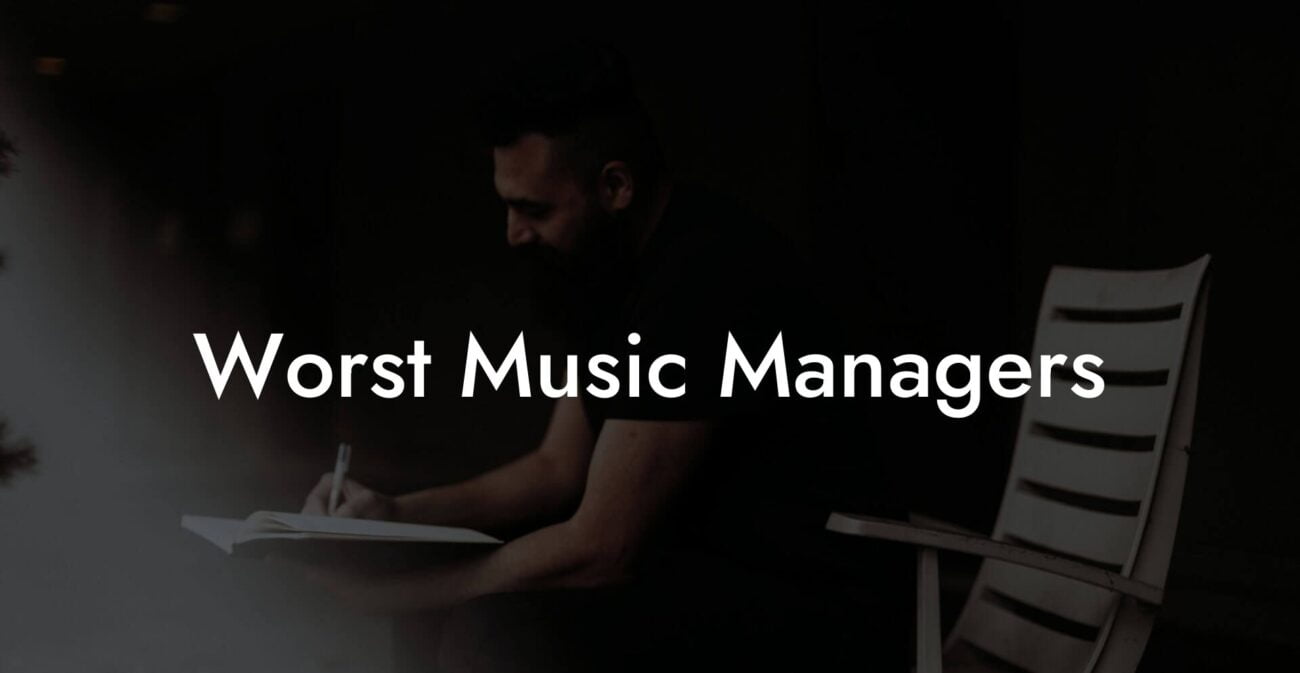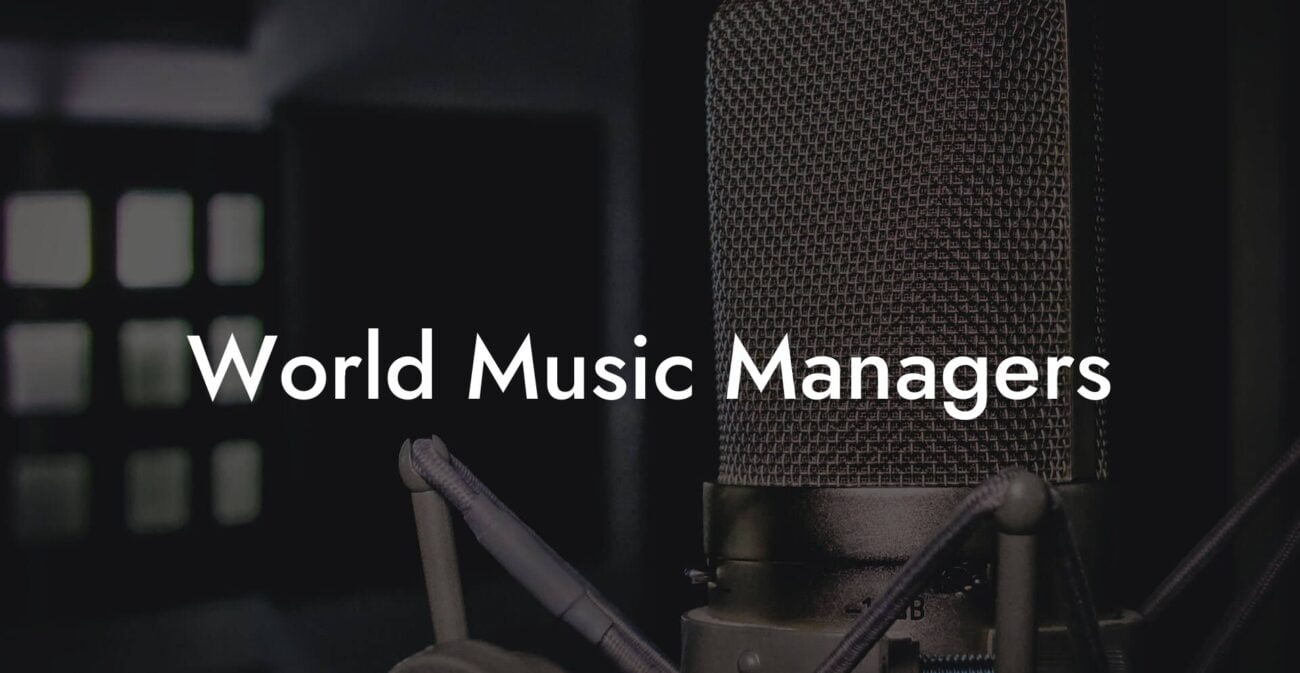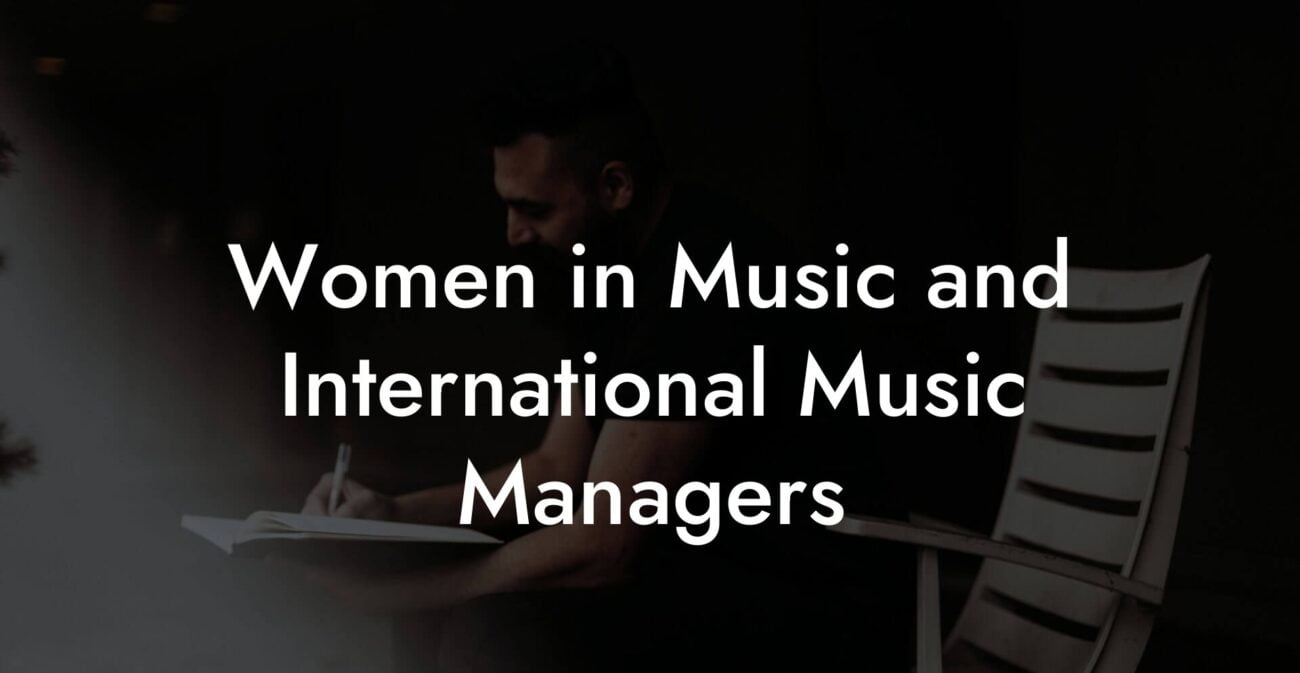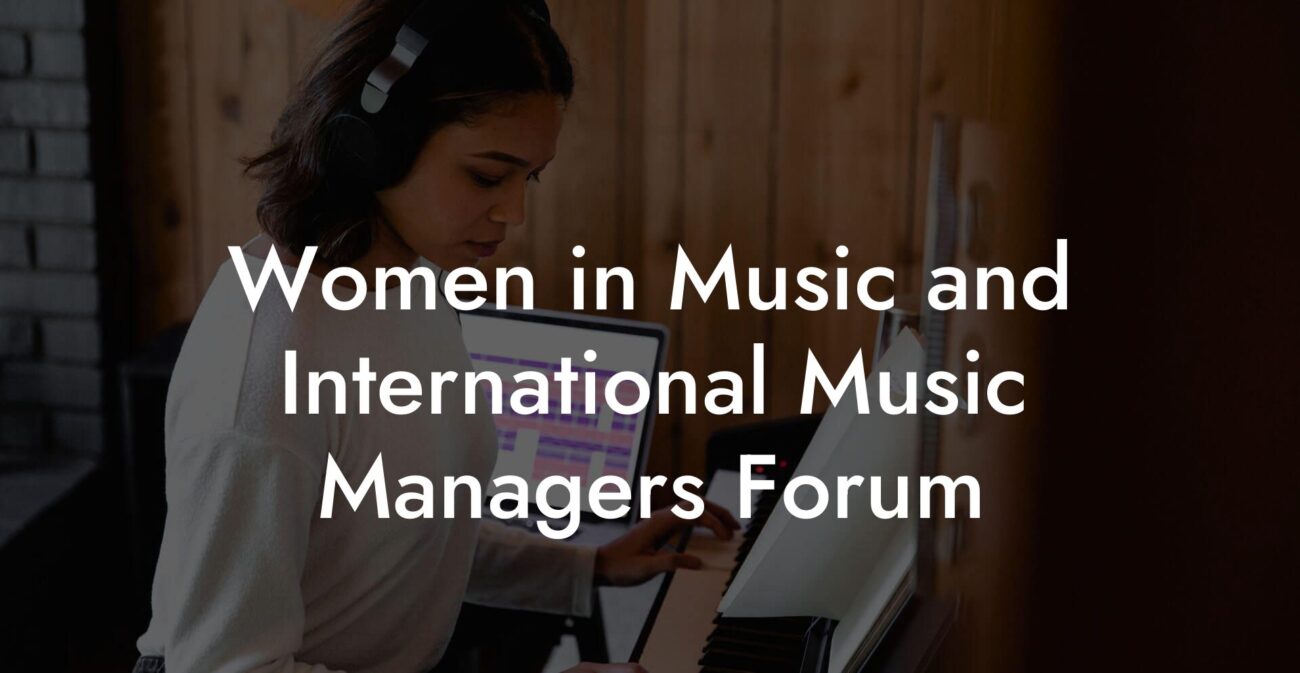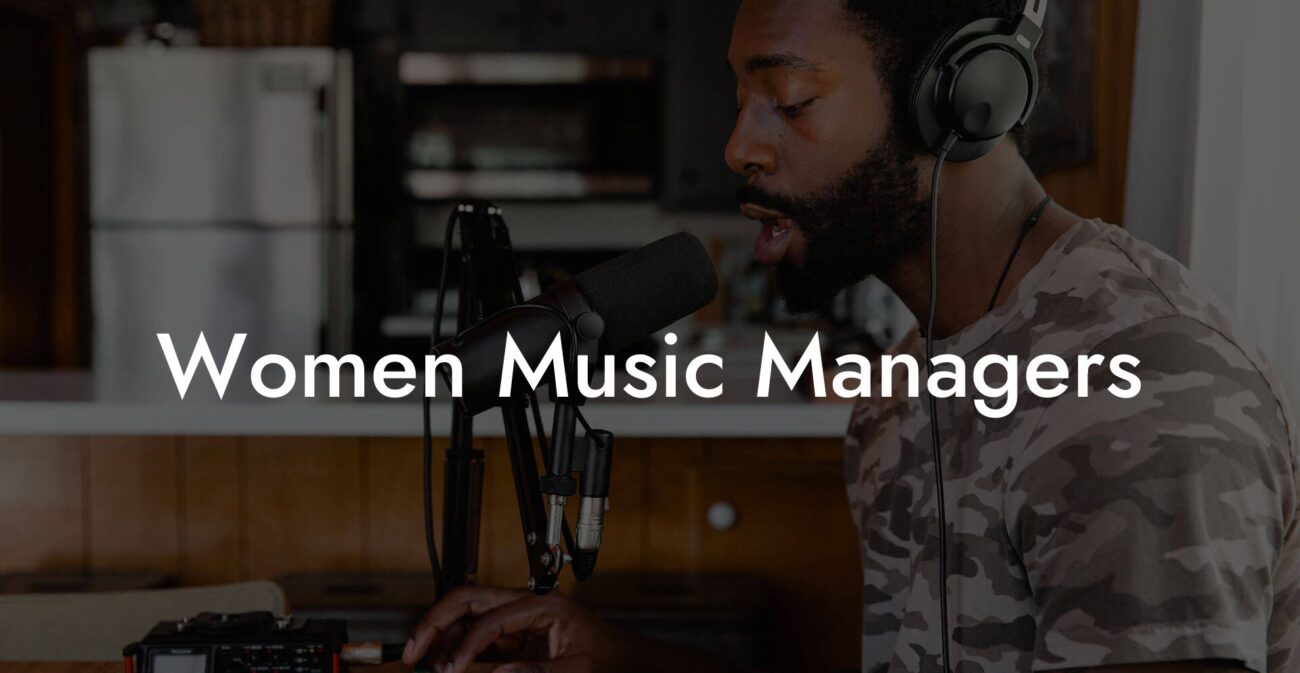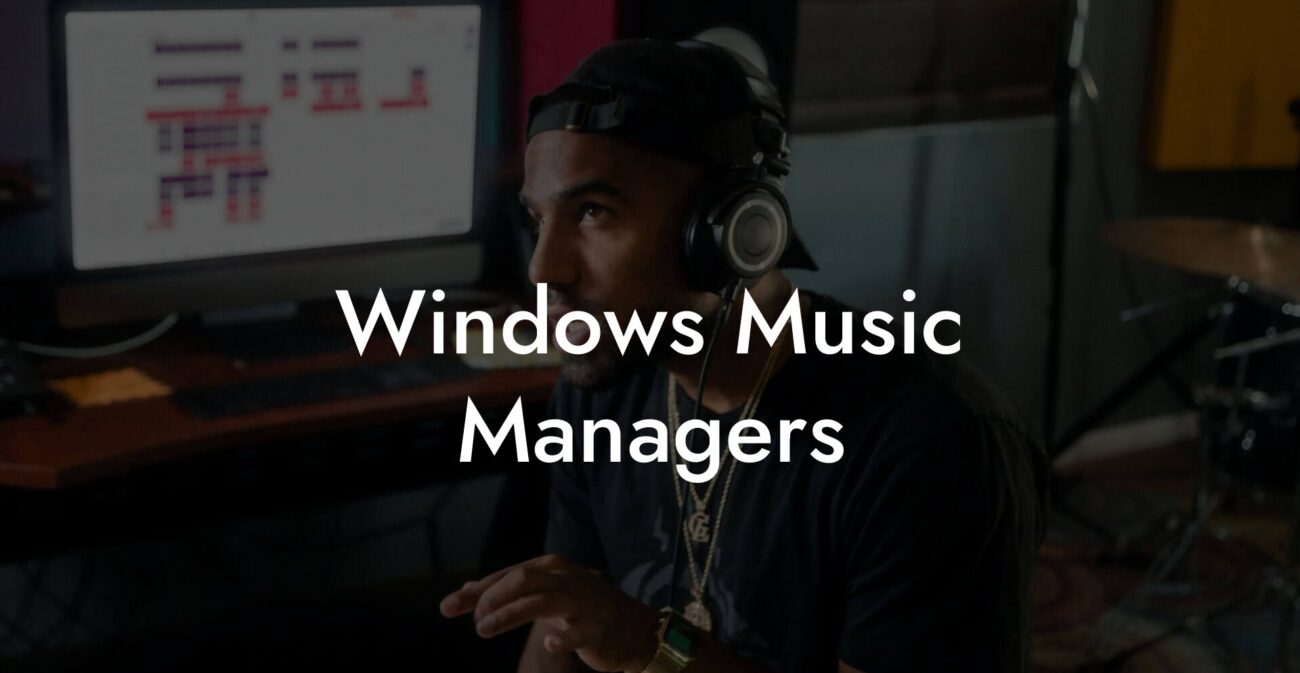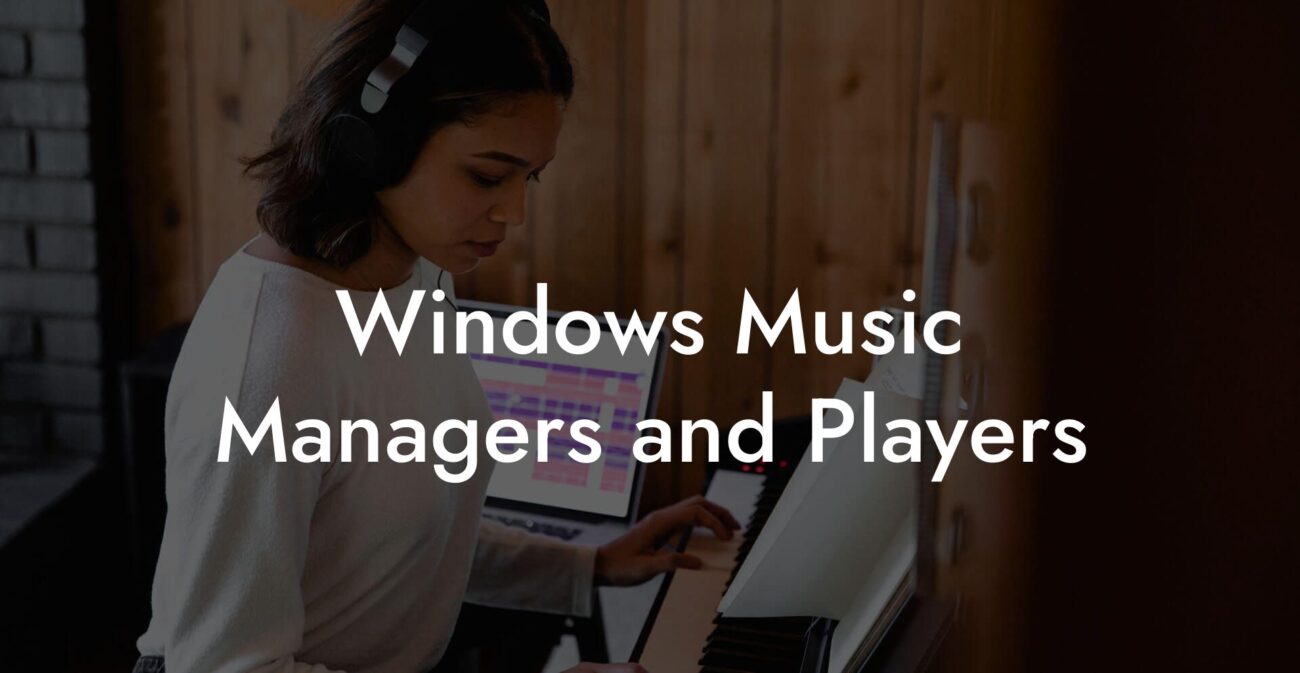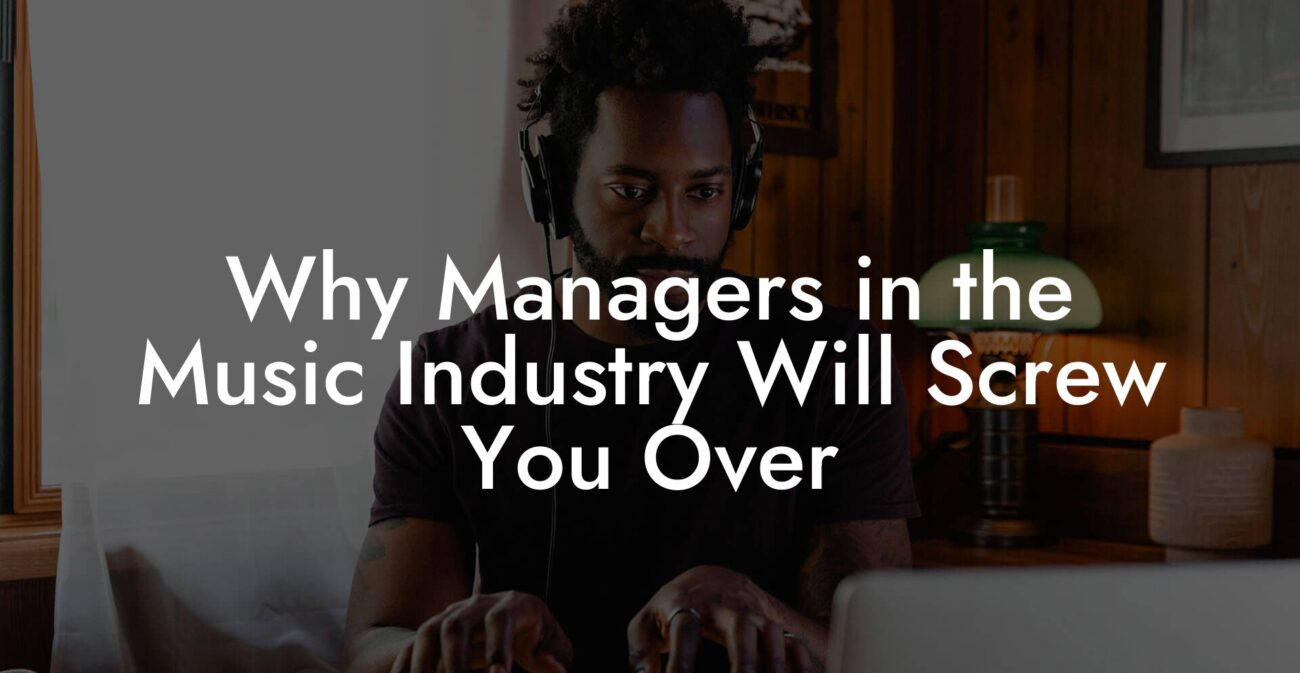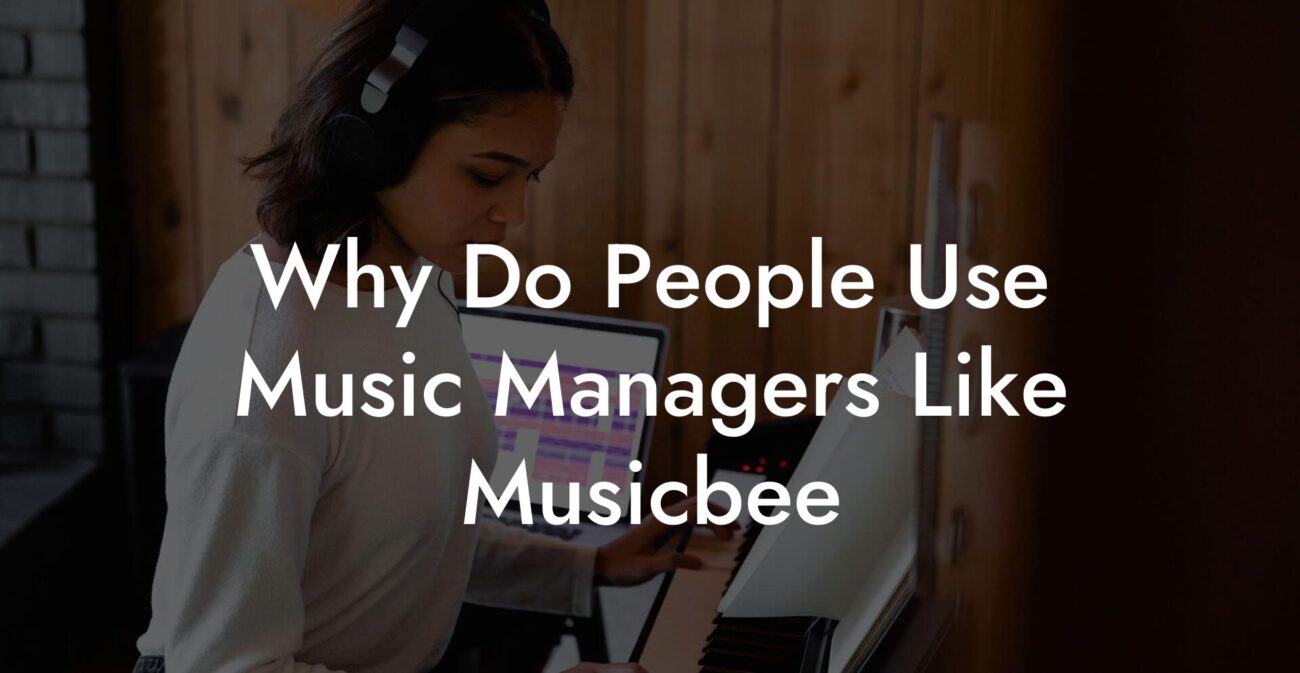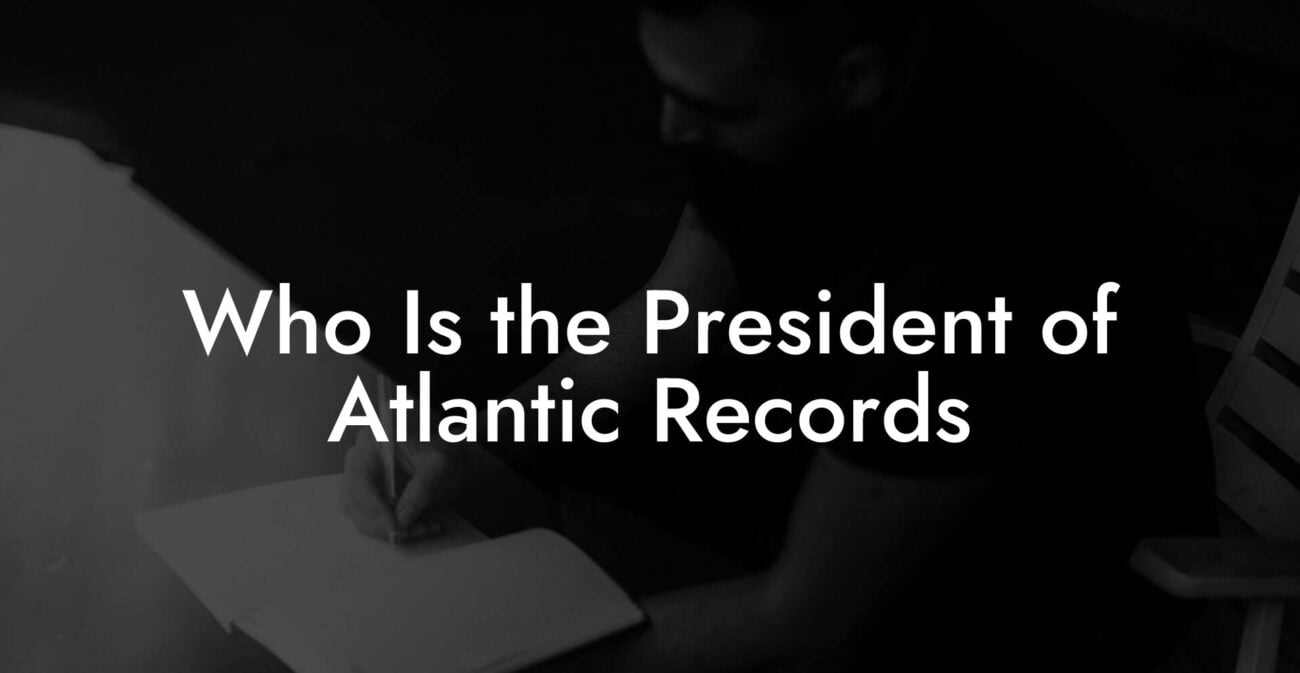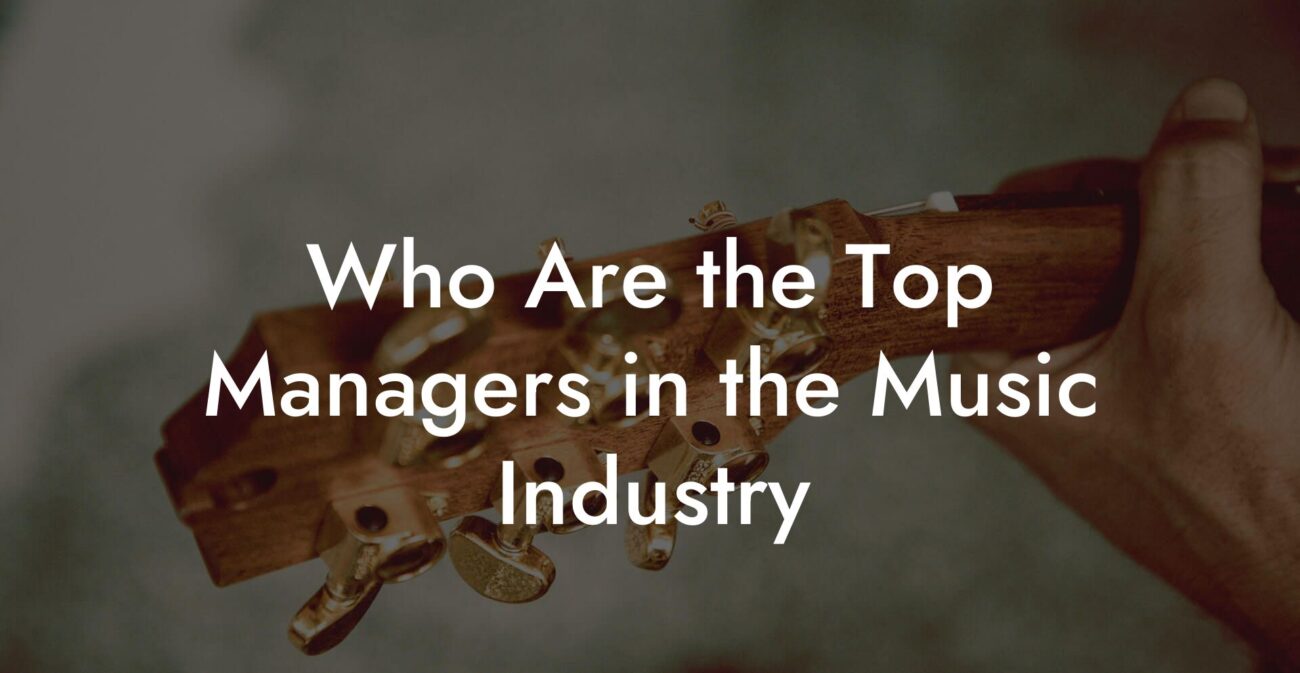Songwriting Advice
When Do Music Managers Get 25 Percent
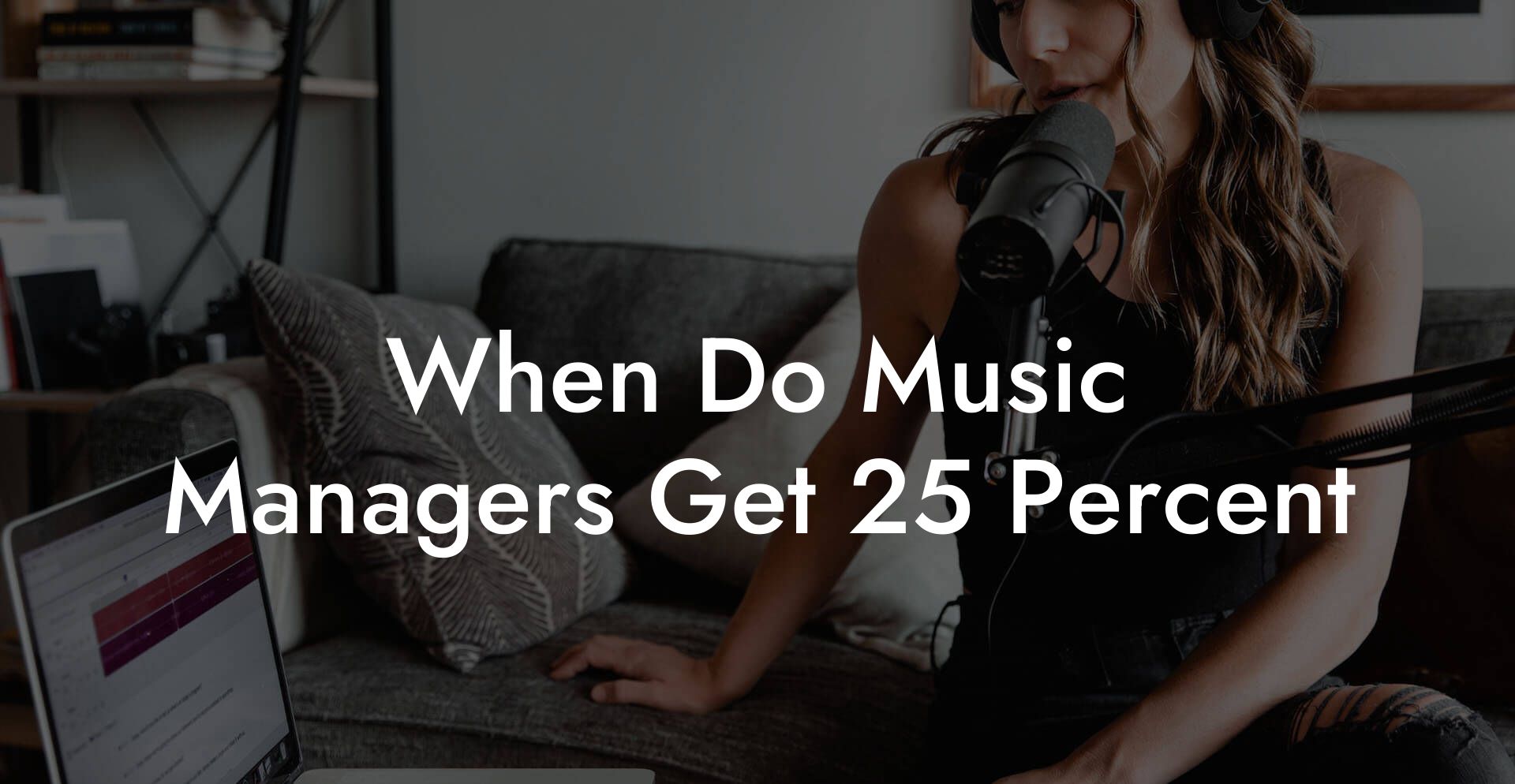
Ever wondered if your music manager’s 25 percent cut was some kind of secret industry ritual or just a quirky coincidence? Buckle up, fellow songwriters and aspiring musicians, as we dive into the dynamic, sometimes mystifying world of music management commissions. Whether you're strumming your first chord or already belting out chart-topping hits, understanding when and why music managers get that infamous 25 percent can be as crucial as nailing the perfect hook in your next lyric. Let’s break it all down in a way that’s as fresh and relatable as your favorite playlist.
Quick Interruption: Ever wondered how huge artists end up fighting for their own songs? The answer is in the fine print. Learn the lines that protect you. Own your masters. Keep royalties. Keep playing shows without moving back in with Mom. Find out more →
Quick Interruption: Ever wondered how huge artists end up fighting for their own songs? The answer is in the fine print. Learn the lines that protect you. Own your masters. Keep royalties. Keep playing shows without moving back in with Mom. Find out more →
Quick Links to Useful Sections
- The Nuts and Bolts of Music Management
- When Do Music Managers Get 25 Percent? Unpacking the Basics
- Decoding Music Manager Commissions: What Does the 25 Percent Cover?
- The Timeline: When Exactly Does the 25 Percent Kick In?
- 1. The Record Deal Moment
- 2. Tour and Merchandise Earnings
- 3. Licensing and Publishing Deals
- Why 25 Percent? The Rationale Behind the Numbers
- Challenges and Misconceptions: Debunking the 25 Percent Myth
- Does 25 Percent Mean You’re Overpaying?
- Can This Percentage Vary?
- What About Independent or DIY Musicians?
- Exploring Alternative Commission Structures and Their Impact
- Performance-Based Commissions
- Fixed Fee Plus Percentage
- Navigating the Managerial Maze: A Guide for Songwriters and Aspiring Musicians
- Navigating the Legal Landscape: What to Look for in a Manager Contract
- Digital Dynamics: How Streaming and Social Media Influence Management Deals
- Future Trends: How Manager Deals are Evolving in the Streaming Age
- Resources and Community Support: Your Next Steps
- Real-Life Success Stories: When the 25 Percent Worked Wonders
- Empowering Your Music Career: A Call to Creativity and Clarity
- FAQs About Music Manager Commissions and the 25 Percent Model
- Your Path to Musical Mastery and Managerial Clarity
The Nuts and Bolts of Music Management
In the sprawling ecosystem of the music industry, managers are the unsung heroes, guiding rising stars through contractual minefields, booking gigs that leave audiences buzzing, and strategizing career moves like chess masters in a sea of pop hits. But here’s the kicker: when a manager lands a deal, they typically ask for around 25 percent of your earnings. Sounds steep? Maybe, but it’s more common than you think, and there’s a method to this monetary madness.
Music managers do more than just hand out business cards at networking events; they offer strategic insights, protect your interests, and open doors to opportunities that might otherwise remain closed. They’re the navigators of your career voyage, ensuring you reach that coveted stage without sinking into a contractual whirlpool.
So, why exactly 25 percent? And when do these percentages get applied? Grab your favorite drink, be it iced latte or kombucha, and let’s muse over the details that can make or break your next big break.
When Do Music Managers Get 25 Percent? Unpacking the Basics
The 25 percent figure isn’t arbitrary, it stems from industry standards that have evolved over decades of negotiation between artists, labels, and management teams. Fundamentally, managers start taking their cut when they’ve accomplished certain milestones: signing you up for a record deal, booking you for gigs, or negotiating licensing deals. Essentially, once they’ve locked in tangible opportunities that directly generate revenue, that’s when the commission comes into play.
Picture it like this: you and your manager are a band playing a giant financial symphony. When the revenue instruments start playing in perfect harmony on a record deal or a touring contract, the manager’s 25 percent is their contribution to keeping the show on the road. Without this financial cushion, ensuring long-term career sustainability in the whirlwind of the music industry would be nearly impossible.
It’s important to note that while the 25 percent figure is a handy rule-of-thumb, it’s more of an industry benchmark than a rigid rule set in stone. Some managers might ask for less, and occasionally, a more experienced manager might command a premium commission if they’re opening even bigger doors for you.
Decoding Music Manager Commissions: What Does the 25 Percent Cover?
Let’s break it down: what are you really paying for? Aside from managing the chaos of scheduling and networking, your manager is investing a significant amount of time, effort, and often personal money to get you that nod from the record label or a booking at the coolest venue in town.
Here are some key areas that a manager’s commission typically covers:
- Career Strategy and Development: Think of this as a roadmap to musical success, where your manager helps you refine your brand and shape your long-term career goals.
- Industry Networking: From intimate gigs at local bars to major festival slots, connections are everything, and your manager’s network is your ticket to the big league.
- Negotiation and Contract Management: The music industry is notorious for its tricky contractual language. Your manager is the expert translator, ensuring that you’re signing deals that serve your interests.
- Crisis Management and Legal Support: When the unexpected happens (and it often does), your manager is your first line of defense to help navigate the choppy waters.
So, while 25 percent might seem like a hefty slice of your earnings pie, it funds a full-service package that aims to supercharge your career and protect your artistic vision.
The Timeline: When Exactly Does the 25 Percent Kick In?
Timing is everything in the music biz. Unlike a vending machine that delivers snacks on demand, a music manager’s commission kicks in at strategic points along your career’s timeline. Here’s a rundown of the typical scenarios:
1. The Record Deal Moment
One of the most significant revenue moments for any artist is signing a record deal. When your manager has successfully negotiated a deal, that’s usually when the 25 percent commission is applied, not immediately upon signing, but once the label starts dishing out payments.
2. Tour and Merchandise Earnings
Tours, live gigs, and merchandise sales aren’t just about the sheer thrill of performing, they also represent lucrative revenue streams. A manager’s cut often kicks in when these financial benefits materialize, ensuring that their hard work behind the scenes is rewarded.
3. Licensing and Publishing Deals
Ever thought your tune could be the next viral montage on a TikTok video or a movie soundtrack? When your music gets licensed or your songs are published, those streams of revenue are another milestone where a manager might claim their share.
It’s crucial for artists, especially those just starting out, to have a well-drafted contract that clearly outlines when and how those commissions are calculated and paid. Transparency here makes the difference between a harmonious partnership and a sour note in your career.
Why 25 Percent? The Rationale Behind the Numbers
You might be thinking, “Why not 20 percent, or even 30?” The 25 percent mark has become the industry norm primarily because it represents a balance between risk and reward for both parties. Here’s how it breaks down:
For your manager, committing to an artist is a huge risk. There is no guarantee that investing their time and resources will yield a blockbuster hit. That 25 percent is essentially a performance fee, a motivation to leverage every connection, strategy, and ounce of industry savvy they have.
On the flip side, from an artist’s perspective, agreeing to this commission is an investment in expert guidance. Think of it like paying for a mentor who not only knows the ins and outs of the industry but is also pulling double shifts to ensure you’re not lost in the noise. It’s a calculated risk that, when managed well, can turn your raw talent into a sustainable career.
It’s also worth noting that the 25 percent standard has evolved through decades of negotiations, strikes, and countless success stories in the music arena. As the industry morphs in the digital age, this percentage serves as a bridge between traditional business models and the modern, streaming-dominated landscape.
Challenges and Misconceptions: Debunking the 25 Percent Myth
Before you run off to interview the next big manager, let’s clear up some common misconceptions about the 25 percent rule.
Does 25 Percent Mean You’re Overpaying?
Not necessarily. While it might sound like a quarter of all your earnings is swallowed up by management fees, consider the expertise, risk, and ongoing support your manager provides. It’s similar to paying for a premium mentoring service: you’re not just buying advice; you’re investing in your future.
Can This Percentage Vary?
Absolutely. The music world is as diverse as the genres it produces. Some managers work for a lower commission if they’re new to the scene or if they see a unique potential for long-term growth in your career. Others, especially those with a track record of launching mega-successful artists, may charge a higher commission. Contracts may also be structured with tiered percentages, initial rates might be lower, with additional commissions kicking in once you hit certain financial milestones.
What About Independent or DIY Musicians?
If you’re riding the independent wave, you might not need a manager right off the bat. But as you grow and the business side of music becomes increasingly complex, a manager can be a game-changer. They can help you navigate deals, negotiations, and even the tricky waters of digital revenue. When you do bring in a manager, you might find that the 25 percent rule is a reasonable exchange for the chaos they tame.
The key takeaway? Know your contract, understand the industry standard, and always negotiate terms that align with your career aspirations. After all, the right manager doesn’t just take a cut, they amplify your potential.
Exploring Alternative Commission Structures and Their Impact
While 25 percent is the headline act in many management deals, alternative structures exist that might better suit your unique career path. Some artists negotiate for performance-based commissions that adjust based on revenue milestones, while others might opt for hybrid models combining fixed fees with a smaller percentage.
Performance-Based Commissions
In this model, your manager’s take could start lower and increase as your revenue – from tours, record sales, and licensing – grows. For many emerging artists, this structure provides a cushion during the early, uncertain days of their career while still rewarding the manager when success streams in.
Fixed Fee Plus Percentage
Another model might involve a modest fixed fee for ongoing services (such as monthly management tasks) coupled with a lower percentage of revenue from major deals. This approach can be particularly appealing if you’re confident in your ability to generate steady income and want to retain more control over your finances.
Whatever the model, the underlying principle remains the same: both you and your manager need to feel that the deal is mutually beneficial. The best arrangements are those that foster trust, transparency, and a shared vision for long-term success.
Navigating the Managerial Maze: A Guide for Songwriters and Aspiring Musicians
If you're sitting on a notebook full of lyrical genius and dreaming of stage lights, the idea of signing on with a manager might feel both exhilarating and intimidating. Whether you’re navigating contract jargon or deciphering complex league tables of revenue splits, here are some practical tips to help you steer the ship:
- Do Your Homework: Before shaking hands, research the manager’s track record. Look for testimonials, ask peers in the industry, and make sure they have a plan that aligns with your musical style and career goals.
- Know Your Worth: Understand the value you bring to the table. When you’re armed with data, streaming metrics, social media engagement, and past gig performances, you can confidently negotiate a deal that reflects your potential.
- Hire a Lawyer: Music business contracts are filled with fine print that can be as intricate as your best lyrics. A lawyer specialized in entertainment law can help you navigate the terms and ensure the agreement works in your favor.
- Stay Involved: Even after you sign on, remain proactively involved in your career decisions. A good manager supports you, not replaces you. Keep your vision clear, and make sure the manager’s actions are aligned with your creative aspirations.
- Use Technology to Your Advantage: From budgeting apps to royalty tracking tools, digital platforms can help you monitor your revenue streams and ensure that commissions are transparent and clearly accounted for.
At Lyric Assistant, we know that while writing lyrics can be a creative espresso shot, managing your music career requires a robust support system. Think of us as the digital sidekick helping you craft those killer verses as you navigate the complex world of music management.
Navigating the Legal Landscape: What to Look for in a Manager Contract
Contracts are the legal blueprints that cement your working relationship with your manager, almost as important as your best-ever songwriting notebook. It’s not just about agreeing on the 25 percent commission; it’s about ensuring that every clause, every fine print detail, protects your creative autonomy.
Here are some key areas to consider:
- Commission Triggers: Make sure the contract clearly outlines when and how the 25 percent fee (or any alternative structure) is activated. Does it kick in with record sales, tour revenue, licensing deals, or all of the above?
- Duration and Termination: Understand how long the contract lasts and what conditions allow either party to exit the agreement. Flexibility here can be essential, especially in the ever-evolving music landscape.
- Scope of Responsibility: Clarify what services your manager is expected to provide. Whether it’s securing gigs, managing royalties, or overseeing marketing strategies, having a detailed list in your contract can prevent misunderstandings down the line.
- Exclusivity Clauses: Some contracts dictate that you can only work with one manager. Ensure that the terms of exclusivity don’t restrict other potential income streams or creative collaborations.
- Additional Fees: Check for any hidden costs or additional fees that might get tacked on later. Transparency is key when it comes to financial dealings.
Bringing in an entertainment lawyer to review the contract can save you from unexpected pitfalls. Remember, the best contracts not only define roles and responsibilities but also foster trust and mutual respect between artist and manager.
Digital Dynamics: How Streaming and Social Media Influence Management Deals
The music industry isn’t what it used to be. With streaming platforms, social media, and viral moments making overnight sensations a real possibility, the way managers approach deals is evolving. Gone are the days when record sales were the sole revenue metric; digital income now plays a massive part in your earnings.
Today, savvy managers understand that your online presence and streaming numbers are just as important as traditional revenue streams. This means:
- Monitoring your digital performance through platforms like Spotify, Apple Music, and YouTube.
- Leveraging social media engagement to create buzz and develop a dedicated fanbase.
- Negotiating deals that include not just music sales and touring, but also influencer collaborations and digital endorsement opportunities.
It’s an exciting time for emerging artists: your smartphone might just be your most potent instrument yet. And as managers adapt their commission structures to these shifts, the traditional 25 percent can evolve into a model that rewards both innovation and adaptability.
Future Trends: How Manager Deals are Evolving in the Streaming Age
The convergence of technology and music is rewriting the rulebook on how careers are built. With the meteoric rise of streaming and social media, many aspects of manager deals are being re-examined. Here’s what might be on the horizon:
Tiered Commission Models: As artists hit major digital milestones, managers might transition to a sliding scale where their commission percentage adjusts based on revenue thresholds. This evolving structure incentivizes both parties to hit new heights while keeping early-career expenses manageable.
Data-Driven Decision Making: With access to an abundance of streaming and social analytics, managers can tailor strategies with unprecedented precision. Expect to see deals where transparent data metrics not only back revenue splits but also inform strategic career pivots.
Expanded Roles: In today’s digital ecosystem, managers are increasingly stepping into roles that overlap with digital marketing, social media strategy, and even tech-savvy royalty management. Their toolkit is expanding beyond traditional industry connections, reflecting the multifaceted nature of modern music careers.
It’s an exciting era where flexibility and innovation lead the stage. For artists, this means staying informed, adapting quickly, and always being ready to integrate the latest trends into your career strategy.
Resources and Community Support: Your Next Steps
As you navigate the hustle and bustle of the music industry, knowledge is your best instrument. From industry blogs and podcasts to forums where fellow creatives share their war stories, tapping into community wisdom can make all the difference.
At Lyric Assistant, our mission is to empower musicians like you to unleash your creative potential. Check out our tutorials, blog posts, and online community where savvy songwriters discuss everything from lyrical inspiration to negotiating manager deals.
Also, consider joining communities on platforms like Discord, Reddit, or Facebook groups where independent artists and music professionals share insider information. Whether you’re hungry for legal tips or want to exchange stories about your breakout gig, tapping into the collective expertise of the music world can be incredibly enriching.
So, what are you waiting for? Dust off that demo tape, fire up Lyric Assistant, and take control of your musical journey today. Every great career begins with a single well-informed decision, so make yours count!
Real-Life Success Stories: When the 25 Percent Worked Wonders
Let’s get real, nothing beats a good success story when trying to make sense of all these figures. Consider the journey of indie artist Jamie, who signed with a manager under the standard 25 percent commission. Early on, Jamie’s career was a whirlwind of gigs in cramped coffeehouses and DIY recordings. But with a manager who knew the ins and outs of streaming trends and licensing deals, Jamie’s star began to rise.
Through a combination of savvy online marketing, clever negotiation, and relentless hustle, Jamie landed a lucrative sync deal with a major streaming service. What seemed like a steep 25 percent cut initially ended up facilitating opportunities that catapulted Jamie into a sustainable music career. Success stories like these prove that with the right manager, that 25 percent isn’t just a cost, it’s an investment in your artistic future.
Another case is that of rock band The Midnight Echoes, whose manager negotiated a hybrid deal combining live performance fees with digital revenue sharing. What was initially structured as a 25 percent cut evolved into a performance-based model that spurred growth and creativity. These examples highlight that contextual factors and negotiation skills can turn a seemingly rigid percentage into a flexible tool for career advancement.
In every scenario, the fundamental truth remains: understanding when and why music managers get 25 percent enables you to ask the right questions, negotiate better deals, and ultimately, keep more of your hard-earned success.
Empowering Your Music Career: A Call to Creativity and Clarity
The journey of navigating music management fees, especially the ubiquitous 25 percent, should never feel like an unsolvable riddle. Instead, think of it as one more beat in the rhythm of your career. By staying informed, negotiating smartly, and harnessing the power of reliable resources like Lyric Assistant, you’re setting the stage for a truly innovative musical journey.
Whether you’ve just scribbled your first lyric or you’re on the verge of signing major deals, remember: every musical genius was once an ardent beginner. Embrace the process, learn from every deal, and let the 25 percent serve as a stepping stone rather than a stumbling block.
Keep your passion alive, iterate on your craft, and remember, your creative journey is as unique as your sound. With clarity, collaboration, and a pinch of negotiated genius, the music industry’s intricate dance of percentages will only propel you towards greater success.
Now, go ahead and mix your tracks, refine your lyrics with Lyric Assistant, and let every chord and contract strike the perfect note of balance between art and commerce.
FAQs About Music Manager Commissions and the 25 Percent Model
We know you’ve got questions, after all, the world of music management can seem as intricate as mastering a new guitar riff. Here are some frequently asked questions to clear up any lingering doubts about the infamous 25 percent commission.
1. Why do most music managers charge around 25 percent?
The 25 percent figure has become an industry benchmark that reflects a balanced exchange of risk and reward. Managers invest time, money, and industry connections to help propel your career, which justifies their commission when tangible revenue, like record deals, touring incomes, or licensing agreements, comes in.
2. When exactly does the manager’s 25 percent kick in?
Typically, the commission begins when your manager successfully secures revenue-generating deals such as record contracts, tours, or licensing agreements. The specifics, however, should always be detailed in your contract.
3. Can the 25 percent commission be negotiated?
Yes, commission rates are negotiable and may vary based on your experience, the manager’s track record, and the structure of your agreement. Some deals include tiered commissions or a mix of fixed fees with a lower percentage.
4. Is a 25 percent commission a standard for both indie and mainstream artists?
While the 25 percent figure is common across the board, independent artists might negotiate differently based on their revenue streams and specific career goals. Transparent discussions and solid contracts always help tailor the deal to suit both parties.
5. What should I look out for in my management contract?
Key components include clear commission triggers, duration and termination clauses, explicit duties of the manager, exclusivity terms, and any additional fees. Having an entertainment lawyer review your contract is highly recommended.
Armed with these insights, you can step into negotiations with confidence, ensuring that every percentage point on your income truly fuels your musical dreams.
Your Path to Musical Mastery and Managerial Clarity
Navigating the world of music management doesn’t have to be a cryptic enigma. Understanding when music managers get their 25 percent, and why, is simply another instrument in your expansive toolkit for career success. With every negotiation and every contract review, you’re stepping up your game as both an artist and a business visionary.
Let your passion for music guide you, but also let informed decisions direct your journey. Use the knowledge shared here to negotiate smart deals, stay transparent about your revenue, and keep your creative vision at the forefront.
And remember, whether you’re polishing your lyrics on Lyric Assistant or penning the next big hit, every successful artist knows that balancing art with business acumen is key to thriving in today’s dynamic music scene. Here’s to writing songs that resonate, snagging deals that elevate, and keeping the 25 percent working in your favor!
Embrace the journey, stay curious, and let every beat of your career reflect the harmony between creativity and smart management. Your musical masterpiece awaits, now go get it!


